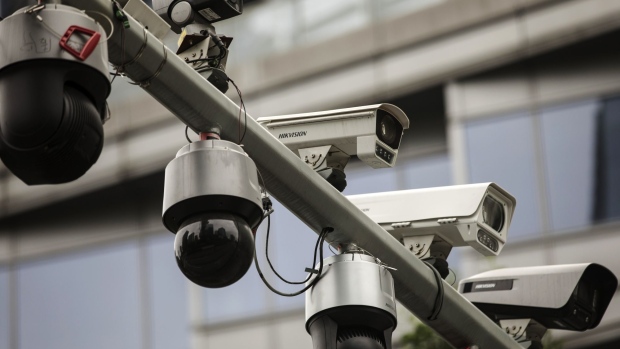Chinese-Produced Security Gear -- Five Eyes Intelligence Group
"The Department of National Defence and the Canadian Armed Forces take physical and corporate security extremely seriously and ensures it has a robust and effective security program in place.""This is accomplished through the development and maintenance of a comprehensive security policy, tailored to both DND/CAF departmental and operational requirements through which we continually assess the effectiveness of our security practices.""Acquisitions are done in accordance with DND/CAF [Department of National Defence/Canadian Armed Forces] industrial security program protocols, which provides oversight of the risks associated with supply chain integrity commensurate with the intended final use of goods/services."National Defence spokesperson Dan Le Bouthillier"Both the human and technical reach of Chinese companies now give the intelligence services opportunities to gain direct access to many governments within the developing world as well as many Allied and European countries with inroads into other societies."Canadian Security Intelligence Service"[If Canadian communication passes through their equipment, the companies could be] compelled to comply with extrajudicial directions from foreign governments in ways that would conflict with Canadian laws or would be detrimental to Canadian interests."Bill C-26, Cybersecurity Law
 |
| Getty Images |
Bill C-26, a proposed cybersecurity law would allow the government to order private telecom networks to extract gear from China-based Huawei and ZTE should their equipment allow Canadian communication to pass through to a foreign government. Canada, as a member of the Five-Eyes intelligence security group, along with the United States, United Kingdom, Australia and New Zealand is now out of step with those other four nations in the laxity of the Liberal government's reaction to obvious breaches in national security posed by Chinese equipment.
This, despite the fact that the Canadian Security Intelligence Service has given due warning to the government that China's National Intelligence Law authorizes Beijing to compel Chinese companies' cooperation with intelligence-gathering. This is a law that not only pertains to companies operating within China, but those with branches and operations globally; all are expected to respond to the National Intelligence Law. This is a law that extends to expatriate Chinese with citizenship in other countries, as well.
DND spokesman Dan Le Bouthillier notes that all closed-circuit video gear comes courtesy of a list of vendors the government's procurement department maintains. Vendors who generally install and maintain equipment they purchase from manufacturers for the purpose of reselling them. The United States initiated a cull of Chinese-produced cameras out of its public security systems in 2019 -- products from Hytera, Hikvision and Dahua specifically targeted, as have other allies in the Five Eyes intelligence-sharing network.
The Department of National Defence in Canada explained it would not follow the U.S. ban of multiple models of security cameras manufactured in China, partly because there are 20,000 DND buildings, none of which properties are managed centrally. Moreover an inventory of where security gear emanates from has never been developed by DND. The United Kingdom and Australia share the U.S. concerns of devices manufactured in China having the potential to endanger national security.
The U.K. in 2022 ordered its government agencies that new Chinese cameras were not to be installed at sensitive sites; further that Chinese-made surveillance equipment from core networks be disconnected, and plans forwarded to remove such equipment altogether. The United States Federal Communications Commission moved to restrict sale of security equipment even to ordinary consumers, of several Chinese brands.
Many police departments in Britain use cameras from Chinese manufacturers, pointed out the British government surveillance watchdog, cautioning that software updates can create new backdoors in equipment following initial installation. Australia's defence minister committed to that country removing Chinese-made cameras from government buildings, while New Zealand this month saw a news probe discovering that Chinese surveillance technology permeates government buildings -- and calls are being made for an audit on the devices.
 |
| Surveillance cameras manufactured by Hangzhou Hikvision Digital Technology Co. are mounted on a post at a testing station near the company's headquarters in Hangzhou, China, on Tuesday, May 28, 2019. Hikvision, which is controlled by the Chinese government, is one of the leaders in the market for surveillance technology, with cameras that can produce sharp, full-color images in fog and near-total darkness. Photographer: Qilai Shen/Bloomberg , Bloomberg |
Labels: Canada, Canadian Security Intelligence Service, Cyber-Security, Five Eyes
0 Comments:
Post a Comment
<< Home